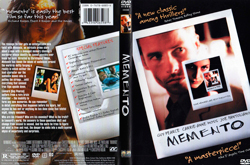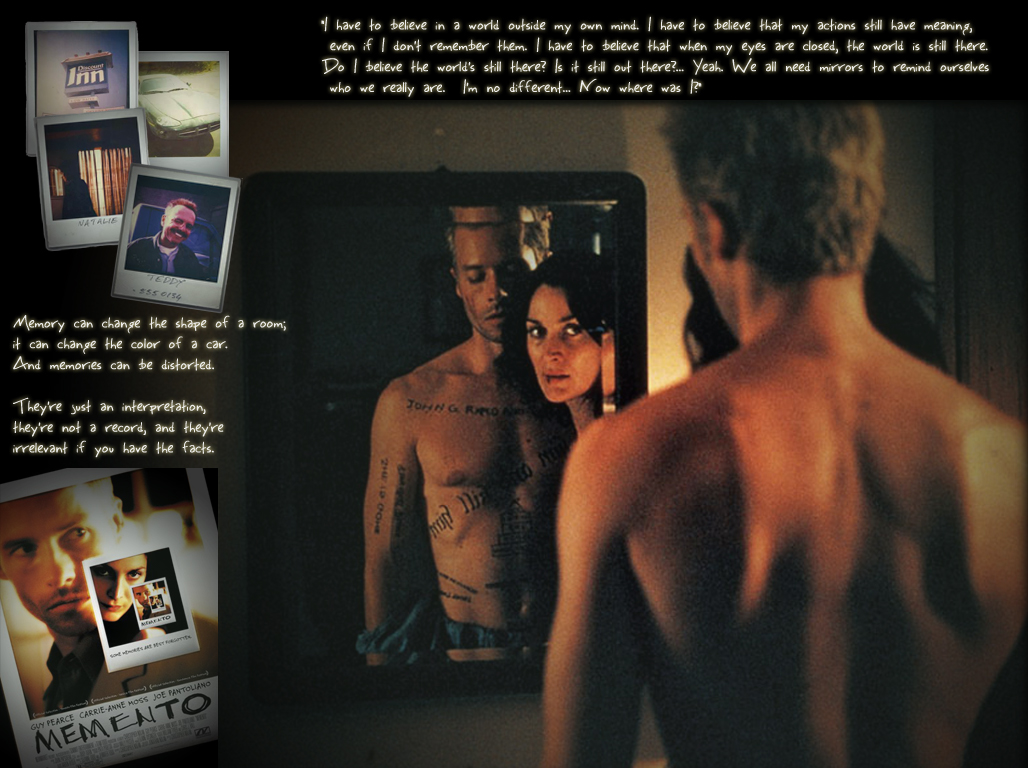MEMENTO is a psychological thriller with script written by Christopher Nolan adapted from his younger brother Jonathan’s short story, MEMENTO MORI. Nolan also directed.
 Possessing only average intelligence, I have to admit to being somewhat confused the first time I saw MEMENTO. But the second time’s the charm, and during the repeat viewing, I found it even more fascinating and marveled at the inventive narrative structure masterfully written by Christopher Nolan.
Possessing only average intelligence, I have to admit to being somewhat confused the first time I saw MEMENTO. But the second time’s the charm, and during the repeat viewing, I found it even more fascinating and marveled at the inventive narrative structure masterfully written by Christopher Nolan.
It’s one of my favorite films of all time and one of the few I’ve seen multiple times.
Memento movie trailer
It stars Guy Pearce as Leonard Shelby, a man with anterograde amnesia, which impairs his ability to store new explicit memories. During the opening credits, which portray the end of the story, it is shown that Leonard kills Teddy (Joe Pantoliano). The film suggests that this killing is vengeance for the rape and murder of his wife (Jorja Fox) based on information provided by Natalie (Carrie-Anne Moss).
Memento movie script
Memento script pdf download
This film is often used to show the distinction between plot and story. The film’s events unfold in two separate, alternating narratives — one in color, and the other in black-and-white. The black-and-white sections are told in chronological order, showing Leonard conversing with an anonymous phone caller in a motel room.

Leonard’s investigation is depicted in color sequences that are in reverse chronological order. As each sequence begins, the audience is unaware of the preceding events, just like Leonard, thereby giving the viewer a sense of his confusion. By the film’s end when the two narratives converge we understand the investigation and the events that lead up to Teddy’s death.
Memento movie review
Memento premiered on September 5, 2000, at the Venice International Film Festival to critical acclaim and received a similar response when it was released in European theaters starting in October 2000. Critics especially praised its unique, nonlinear narrative structure and themes of memory, perception, grief, self-deception, and revenge. The film was successful at the box office and received numerous accolades, including Academy Award nominations for Original Screenplay and Film Editing.
